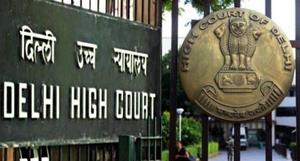Delhi HC Dismisses PIL Seeking Removal Of Maqbool Bhat, Afzal Guru's Graves From Tihar Jail
While Maqbool Bhat was hanged in Tihar jail on February 11, 1984, Afzal Guru was hanged on February 9, 2013, in the same jail.
Both were later buried in the jail premises after performing the last rites according to the laid-down Islamic principles.
The PIL was filed by Vishwa Vedic Sanatan Sangh and an individual named Jitendra Singh. The petition argued that the construction and continued presence of the graves inside a state-run prison were“illegal, unconstitutional, and against public interest”.
A bench of Chief Justice Devendra Kumar Upadhyaya and Justice Tushar Rao Gedela of the Delhi High Court dismissed the PIL as withdrawn.
The reluctance of the bench to entertain the PIL prompted the petition lawyer to plead before the court that he should be allowed to withdraw the petition.
The high court bench observed,“For approaching the court for a relief in a PIL, you have to show us a violation of constitutional rights, fundamental rights or statutory rights. No law or rule prohibits cremation or burial inside the jail premises,” the bench said.
The PIL had sought directions to the authorities concerned to relocate the mortal remains of the two, if necessary, to a secret location to prevent 'glorification of terrorism' and misuse of jail premises. The petitioners claimed that the presence of these graves has turned the central jail, Tihar, into a site of 'radical pilgrimage' where extremist elements gather to venerate convicted terrorists.
“This not only undermines national security and public order, but also sanctifies terrorism in direct contravention of the principles of secularism and rule of law under the Constitution of India,” the petitioners pleaded.
To this, the bench asked where the data is to say that people are going inside to pay homage at the graves of Guru and Bhatt.
The plea claimed that the existence of these graves inside the jail violates the express provisions of the Delhi Prisons Rules, 2018, which mandate disposal of bodies of executed prisoners in a manner that prevents glorification, ensures prison discipline, and maintains public order.
Maqbool Bhat had founded the JKLF, which later launched an armed insurgency for the secession of Jammu and Kashmir from India.
On November 4, 1989, JKLF terrorists shot dead judge Neelkanth Ganjoo, who had presided over the Amar Chand murder trial, and declared a sentence of death on Maqbool Bhat.
Afzal Guru was a terrorist who was convicted for his role in the 2001 Parliament attack. He received a death sentence for his involvement, which was upheld by the Supreme Court. Following the rejection of a mercy petition by the President, he was executed on February 9, 2013. His body was buried within the precincts of Delhi's Tihar Jail.

Legal Disclaimer:
MENAFN provides the
information “as is” without warranty of any kind. We do not accept
any responsibility or liability for the accuracy, content, images,
videos, licenses, completeness, legality, or reliability of the information
contained in this article. If you have any complaints or copyright
issues related to this article, kindly contact the provider above.
Most popular stories
Market Research

- New Cryptocurrency Mutuum Finance (MUTM) Raises $15.8M As Phase 6 Reaches 40%
- Bydfi Joins Korea Blockchain Week 2025 (KBW2025): Deepening Web3 Engagement
- Yield Basis Nears Mainnet Launch As Curve DAO Votes On Crvusd Proposal
- 0G Labs Launches Aristotle Mainnet With Largest Day-One Ecosystem For Decentralized AI
- Ethereum-Based Defi Crypto Mutuum Finance (MUTM) Raises Over $16 Million With More Than 720M Tokens Sold
- Fintech's Gender Gap In Focus: Drofa Comms' Women Leading The Way Joins Evolvh3r's She Connects At TOKEN2049





















Comments
No comment